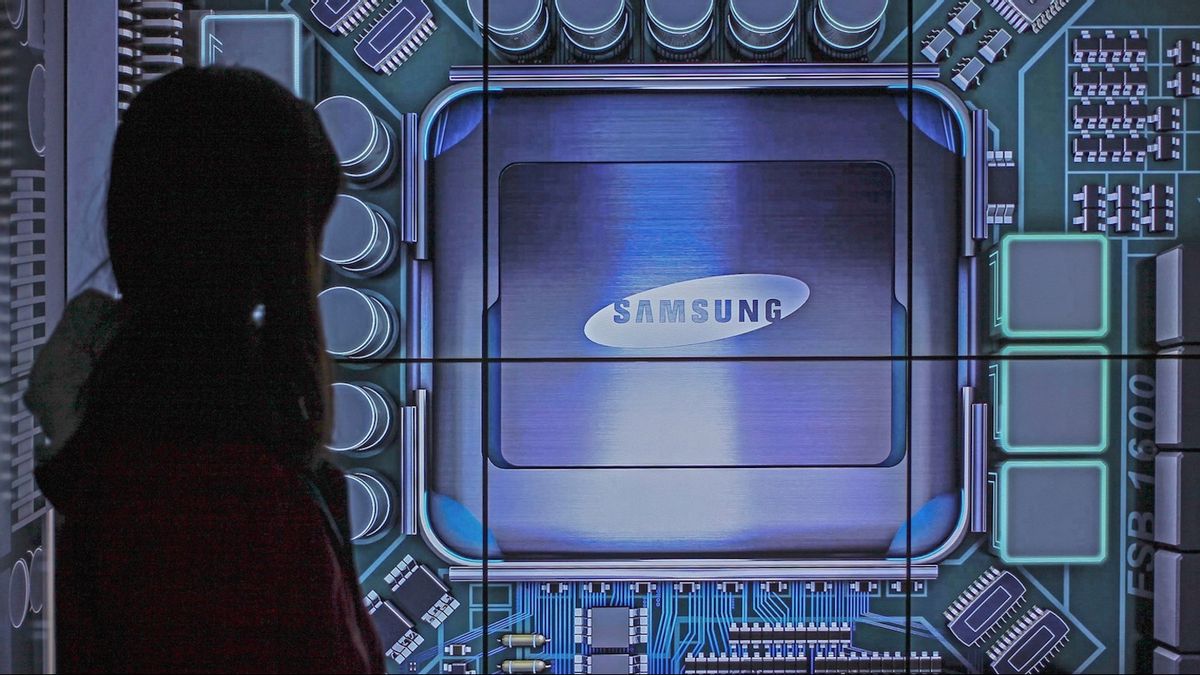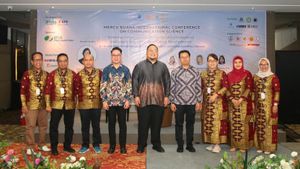JAKARTA - Samsung Electronics announced that its contract manufacturing business will offer one-stop services for clients to accelerate the production of AI chips. Integrating memory chip services, foundry, and global chip packaging number one, Samsung takes advantage of AI explosions.
According to Samsung on Wednesday, June 12, with clients working through a communication channel directing Samsung's memory chip, foundry and packaging team, the time it takes to produce an AI chip - which is typically weeks - has been cut by about 20%.
"We really live in the AI era - the emergence of a generative AI completely changes the tech landscape," said Siyoung Choi, President and General Manager, Business Foundry, at the Samsung event in San Jose, California. Samsung expects global chip industry revenue to grow to 778 billion US dollars (IDR 12,670.2 trillion) by 2028, driven by an AI chip, added Choi.
At a briefing with reporters before the event, Foundry's Executive Vice President of Sales and Marketing, Marco Chisari, said the company believes the projected soaring AI chip demand from OpenAI CEO Sam Altman is realistic.
Altman has informed executives at contract chip maker TSMC that he wants to build about three dozen new chip factories. Samsung is one of the few companies selling memory chips, offering foundry services, and designing chips under one roof. This combination has often been an obstacle in the past, as some clients fear that doing business with Samsung's foundry could benefit Samsung as a competitor in other fields.
SEE ALSO:
However, with the soaring demand for AI chips and the need for all parts of the chip to be well integrated to train or process large amounts of data quickly using less power, Samsung believes its turnkey approach will be a force going forward.
The South Korean tech giant is also promoting its cutting-edge chip architecture known as the gate all-around (GAA), a type of transistor architecture that helps improve chip performance and reduce power consumption.
GAA is considered important to continue to make more powerful chips for AI as chips become smaller to push the boundaries of physics. Although competitors like TSMC are also working on chips using the GAA, Samsung is starting to implement the GAA earlier, and says it plans to mass-produce a second-generation 3-nanometer chip using the GAA in the second half of this year.
Samsung also announced the process of making the latest 2-nanometer chip for high-performance computing chips, which puts the rail at the back of the wafer to increase power deployment. Mass production is planned for 2027.
The English, Chinese, Japanese, Arabic, and French versions are automatically generated by the AI. So there may still be inaccuracies in translating, please always see Indonesian as our main language. (system supported by DigitalSiber.id)


















